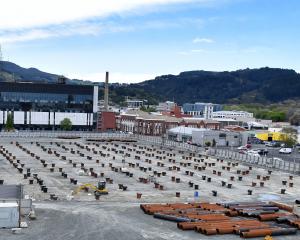
Another election, another delay. As I write this, we are a month on from election night and still waiting for the new government to take office.
Long and frustrating post-election stoppages to forming a government have become the norm since MMP was introduced in 1996. Any new government is elected to make change, but the current process halts their momentum. The delays eat into the three-year election cycle, which is barely enough as it is for meaningful and lasting reform.
What can be done to fix this? The delays have two causes: coalition negotiations, which can’t be avoided, and special vote processing.
It is time to do what many other countries do and use a central government register, like the IRD database, as the foundation for the electoral roll.
The separate electoral roll was designed decades ago when lots of voters did not have an IRD number, and the idea of databases talking to each other was unheard of. Now virtually all voters have an IRD number.
There is already a legal duty on all eligible voters to be on the electoral roll. IRD data could be shared without breaching the privacy of taxpayers. This would dramatically reduce the vast number of special votes in New Zealand elections, and therefore the time needed to count them.
Using the IRD’s comprehensive database of the country’s adult population to prepare the electoral rolls would be much more accurate. It would have the added benefit of dramatically cutting the Electoral Commission’s costs. The commission’s budget is estimated at $116 million in the current financial year, much of which is spent on maintaining and updating the electoral roll.
Over 600,000 special votes were cast in the 2023 election — that’s more than 20% of the nearly 2.9 million total vote. Counting specials is incredibly time-consuming, because each vote must be checked for eligibility before being verified.
This election, special vote counting took three weeks. It was clear that the large number of specials was going to change the overall party result, so coalition discussions could not start in earnest until after the full count was in. Reducing the special vote count to, say, less than 5% of the total would have two big benefits: speeding up the final result announcement, and allowing coalition formation to start earlier, because of the lower risk of specials making a meaningful difference to each party’s share of the vote.
The IRD has the fullest and most up-to-date database of New Zealanders. It includes all current and non-current taxpayers, such as retirees and students. Key personal details needed for the electoral roll, such as current address, are automatically updated at least annually when tax returns are filed.
In contrast, before every election the Electoral Commission has the challenge and expense of having to reach out to everyone on the rolls to confirm information. Inevitably, there are many non-responses, leading to the large number of special votes.
Through a simple law change, the IRD could be empowered to provide the Electoral Commission with the information it needs to compile up-to-date electoral rolls before each election.
Alternatively, the commission could contract the task of compiling the rolls to the IRD. The commission would still have to manage the Māori electorate roll and voter option.
This is not a new idea — several other countries compile their electoral rolls from central government registries, rather than having a separate, dedicated electoral database.
For example, Denmark uses the same national register of citizens and residents for tax and voter lists, and holds data on residency. Other countries with similar systems include Spain, Germany, South Korea, the Netherlands, Sweden, Finland, Norway, Argentina and Peru.
Canada uses its Revenue Agency records to update its National Register of Electors.
New Zealand’s triennial parliamentary shutdowns are not going to stop unless we make change — as the saying goes, if you keep doing things the same way, you will get the same result.
The incoming prime minister has said he intends to govern for all Kiwis. There’s no better way to start than by helping them to vote, and to help the new governments they elect to get going quickly.
Fair and efficient elections are the cornerstone of democracy. I’m happy to give this idea to the incoming administration, to help our country save taxpayer dollars and get a final election result sooner.
— David Parker is a Labour list MP.











